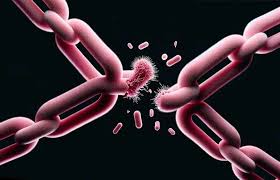Breaking the TB chain.
With the aim of making clinical testing for a wider range of diseases more accessible, the Indian Council of Medical Research (ICMR) has updated its National List of Essential Diagnostics to include rapid diagnostic tests for sickle cell anaemia, thalassaemia, Hepatitis B and syphilis, among others. Significantly, there is a push for early detection of tuberculosis (TB) at the lower levels of the healthcare system — the list recommends collecting samples at the level of the sub health centre (SHC) for molecular TB testing in order to identify asymptomatic individuals, as well as the TB skin test in community healthcare centres, to detect the presence of the pathogen in those without an active infection.
WHO data shows that since 2015, India has made good progress in tackling TB. There has been a 17 per cent drop in the number of reported cases and a 20 per cent drop in the number of deaths. More than 85 per cent of those detected with the infection have received treatment and efforts to contain multi-drug-resistant TB are yielding results. It is evident that the TB problem is not intractable, but given India’s massive disease burden, accounting for 27 per cent of the global cases, there is no room for complacency. The challenge is compounded by the problem of subclinical TB, where infected individuals do not yet present symptoms like persistent coughing. A study published in The International Journal of Tuberculosis and Lung Disease in 2024 found that 39 per cent of TB cases in India are subclinical, and therefore more likely to escape detection and continue spreading. This is why the attempt to tackle TB as early as possible matters. The ICMR’s update, making molecular TB testing available at the level of the community health centre (CHC) —with sub-centres and primary healthcare centres (PHCs) also sending samples to be tested — could be crucial to providing timely treatment and breaking the chain of transmission.
Despite making significant progress, India is unlikely to meet its target of eliminating TB by the end of the year. The government has made the expansion of primary healthcare a key pillar of its policy, with the aim of bringing a broad spectrum of services closer to the people through the network of over 1.7 lakh centres around the country. The broadening of the TB diagnostics must be factored in, equipping SHCs and PHCs to identify and treat infected individuals as early as possible, even as initiatives to reduce the financial burden of treatment and improve access to nutrition are strengthened.
